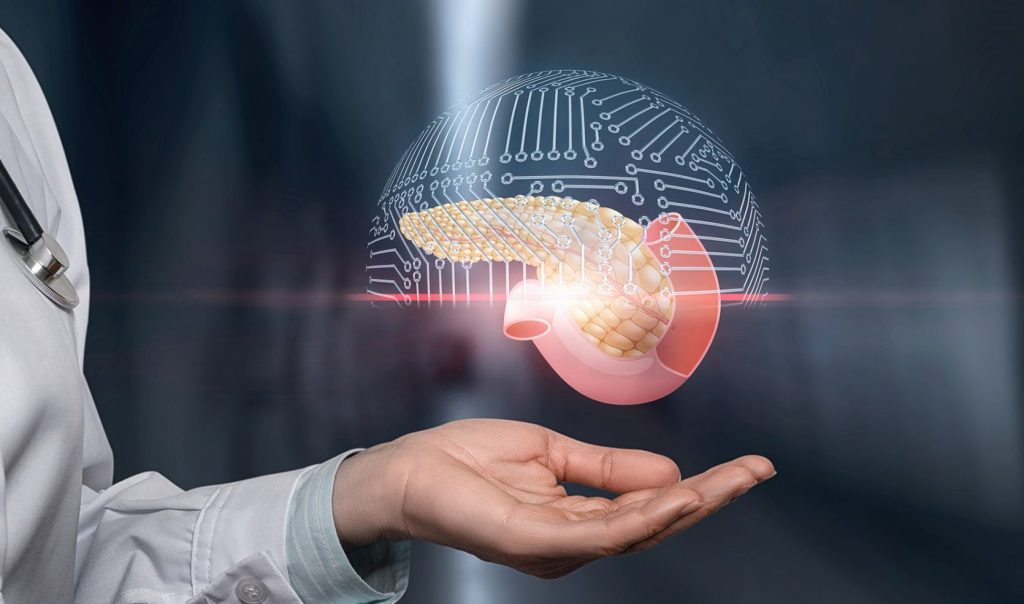### Pancreas and Diabetes
The pancreas, nestled deep within your abdomen between the spine and the stomach, plays a vital role in your body’s functions. It releases insulin, a hormone key to digestion and regulating blood sugar levels. When blood sugar levels surge excessively, the risk of developing diabetes increases, particularly if the pancreas malfunctions or the body fails to utilize the produced insulin effectively.
Diabetes, along with other pancreatic disorders like pancreatitis and pancreatic cancer, are closely linked. However, having pancreatic issues doesn’t inevitably lead to diabetes. Various factors, including blood sugar levels and insulin production capabilities, influence the onset of these conditions.
## Diabetes and Pancreatitis
Pancreatitis is marked by inflammation of the pancreas, occurring when digestive enzymes begin acting within the pancreas itself, causing cellular irritation. Though diabetes doesn’t directly cause pancreatitis, those with type 2 diabetes are more susceptible to it. To discover more about diabetes symptoms, visit type 2 diabetes symptoms.
Multiple factors may lead to pancreatitis, including smoking and infections. However, excessive alcohol consumption and gallstones are the primary causes. Pancreatitis appears in two forms:
- Acute Pancreatitis: Sudden onset and lasts for a few days.
- Chronic Pancreatitis: Long-lasting and recurrent, potentially leading to diabetes.
Medical intervention can treat pancreatitis, with severe cases potentially requiring hospitalization. Individuals with type 2 diabetes might require added insulin therapy due to impaired insulin processing. You can lower your risk by maintaining a healthy weight, adopting a balanced lifestyle, abstaining from smoking, and limiting alcohol consumption.
## Diabetes and Pancreatic Cancer
Pancreatic cancer originates in the pancreas and has ties to type 2 diabetes, either as a symptom or a risk factor. This type of cancer is twice as common among those with type 2 diabetes. Having diabetes for five years or longer raises your likelihood of developing pancreatic cancer. For more insights, visit type 2 diabetes symptoms.
Although rare, pancreatic cancer can prompt diabetes by destroying insulin-producing cells. If type 2 diabetes develops after age 50, it could be a sign of pancreatic cancer. Additionally, if you’ve had diabetes for years and suddenly undergo significant blood sugar fluctuations, it might be a warning sign.
Managing diabetes becomes more complex with pancreatic cancer. Your healthcare provider may need to adjust your medications or recommend more frequent blood sugar monitoring. Consulting a nutritionist or a diabetes specialist can provide valuable advice on managing your condition effectively.
